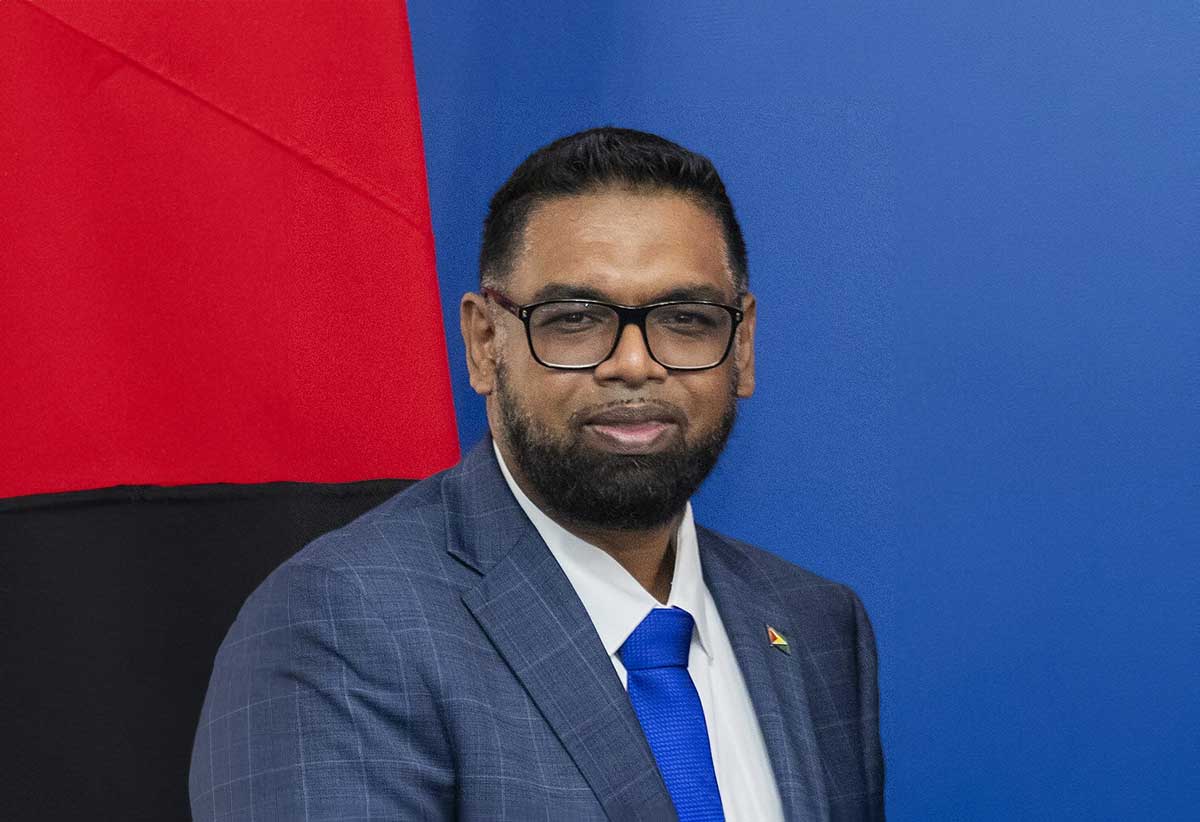
In an address to a wide cross section of parliamentary officials, foreign dignitaries, government officials and corporate sector representatives – Guyanese President Dr. Mohammed Irfan Ali stressed on the importance of agriculture as part of the system, geared towards food production and sustenance.
Dr Ali cited Saint Lucia’s food import bill at an average of over 200,000 metric tons per annum. Looking at some of the foods that Saint Lucia imports, he said, there is need to create a “local food production system” to eliminate those imports, which can be seen as “not such a daunting task.”
He said if climate financing is applied, as food security is part of resilience and adaptation, these imports can be replaced with a technology that is relevant and suitable to include the mechanism of hydroponics.
An investment of approximately four to five acres of land to accommodate hydroponics, said Dr Ali, can help alleviate climate risks, pest control and other factors and reduce the country’s food import bill, by at least 70% of foreign exchange.
He said Guyana has a model to create innovative agro-business opportunities, utilizing technology, research, and innovation to have 35% of all agro-businesses owned by women and young people.
“Agriculture is part of a system, and the system is food production…and building that entire ecosystem around agriculture would help us focus on this objective,” declared Dr. Ali.
On a wider scale, Dr Ali stated that CARICOM, is pursuing “the 25 x 2025 objective”. He noted that over the last three years, Saint Lucia has seen “improvement in productivity, improvement in production and expansion in agriculture and that is commendable as we work towards achieving the 25 x 2025.”
Relating to fish imports, he said, Saint Lucia imports nearly 15,000 tons of fish, plus USD12 million in poultry annually.
“These are things, if we build consortiums between Saint Lucia’s private sector and the Guyanese private sector that we can resolve within the region,” Dr. Ali noted.
“This import can occur within the region, this business can be developed within the region, these opportunities can be catalyzed within the region, wealth can be created within the region and both Saint Lucia and Guyana will benefit and the region will benefit as a whole,” he said.
The Guyanese leader stressed that food production can bolster food supplies for the two countries and the wider region, and that these issues can be better approached from a holistic angle.
He said the regional leaders need to work out the mechanism to remove “the bureaucracy removing barriers” in such a manner that “there is a commitment, political will and bureaucratic will”.
He said there are some good policies in place, but “we have to approach these issues from a holistic perspective if we are to realise the full potential of these opportunities.”
Towards this cause, Dr. Ali disclosed, Guyana is moving to create “a regional food hub”, and are now working to link northern Brazil to Guyana.
Also, Guyana is now heading towards the reduction of energy costs by 50%, next year. With this development, he added, and taking advantage of the opportunities that exist in northern Brazil, Guyana can become more resourceful in the areas of processing, agro-processing, manufacturing, and industrial development.
Dr Ali said, Guyana can now become “a very competitive destination …for agro processing.” Alternately, he said, the opportunity exists to also try and build a regional food hub, which connects Saint Lucia not only for your own needs but also for Saint Lucia to become a distribution hub.”
The CARICOM Chair asserted: “That is the type of model we have to build; that is the type of co-investment that the private sector must make.
“That is a type of joint operation that the government of Saint Lucia and the Government of Guyana are committed to ensuring that we create these opportunities.”
(More of Dr Ali’s comments can be found on here)













